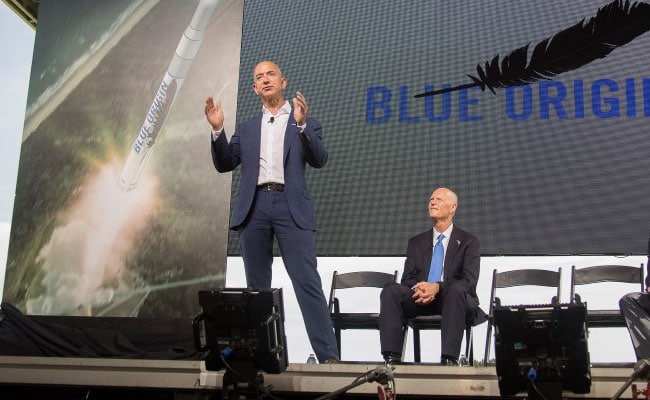
close to the pinnacle of the letter, Jeff Bezos addressed the issue of the corporation‘s tradition.
it can no longer be Warren Buffett’s eagerly anticipated letter to shareholders, however Amazon.com chiefgovernment Jeff Bezos’s annual investor missive has become recognized for providing its very ownyearly insights into how he runs the web retail giant.
years in the past, for instance, Bezos, who additionally owns The Washington post, shared in his letter that Amazon had followed an approach from Zappos, offering achievement center personnel between$2,000 and $five,000 to depart if they didn’t want to paintings there anymore. As part of each yr‘s letter, he republishes the one he wrote in 1997, in which he set out his notion in “lengthy–time period marketleadership concerns in preference to brief–time period profitability issues or brief–time period Wall roadreactions.”
This yr, among other things, Bezos shared his thoughts on selection-making, failure and Amazon’scompany way of life, which came below hard scrutiny remaining August in an investigation by the nyinstances that received masses of interest.
near the top of the letter, Bezos addressed the problem of the organisation‘s tradition. “A phraseapproximately company cultures: For better or for worse, they may be enduring, stable, tough toalternate,” he wrote. “They may be a source of advantage or disadvantage. you can write down yourcompany subculture, however when you do so, you’re coming across it, uncovering it – no longerdeveloping it. it’s far created slowly over time through the people and by events – with the aid of thetales of past success and failure that emerge as a deep a part of the business enterprise lore.”
although he did not without delay mention the instances story, he stated that a distinct companytradition suits a few people however no longer others. “The cause cultures are so strong in time is due to the fact human beings self-pick out,” he wrote. “someone energized by means of aggressive zeal may also choose and be satisfied in one tradition, while a person who loves to pioneer and invent might also pick any other.” He wrote that “we never claim that our approach is the right one – just that it is ours – and during the last decades, we’ve got accrued a massive group of like-minded humans.”
Bezos went on to describe the importance of experimentation at Amazon, the use of words that are rarefor a normal CEO to use in a letter to traders.
“One vicinity where I think we’re mainly distinctive is failure,” he wrote. “I believe we are the fine placein the global to fail (we have plenty of practice!), and failure and invention are inseparable twins. To inventyou have to test, and if you understand earlier that it’s going to paintings, it’s now not an test. mosthuge corporations embody the idea of invention, but aren’t willing to go through the string of failed experiments necessary to get there.”
He referred to the three “formidable bets” at Amazon which have worked: Amazon net offerings, theagency‘s cloud computing business; marketplace, its enterprise for 1/3–birthday celebration dealers; andprime, its fast delivery subscription carrier. market, he wrote, started after efforts that neglected (Auctions and zShops), at the same time as Amazon net offerings, which has now reached $10 billion in annualincome, become initially greeted with skepticism.
the use of a good deal more commonplace verbiage for CEOs, Bezos’s letter blanketed the ever presentbaseball analogy. “when you swing, irrespective of how properly you connect with the ball, the most runsyou may get is four. In enterprise, each on occasion, while you step up to the plate, you could rating1,000 runs. This lengthy-tailed distribution of returns is why it’s crucial to be formidable. huge winners pay for such a lot of experiments.”
Bezos seems conscious, however, of the difficulties massive groups have in remaining “an inventiongadget,” as he put it, writing that a not unusual lure is “one-length–suits-all” choice-making. “kind 1choices,” he wrote, are the ones which can be “consequential and irreversible or nearly irreversible – one-manner doors – and those decisions need to be made methodically, cautiously, slowly, with terrificdeliberation and session.” meanwhile, “type 2 decisions,” which may be reversed if they are not madeproperly, should be made a good deal faster.
The trouble with many big businesses, he wrote, is they follow the methodical method they use for largercalls to much less weighty choices too frequently: “The cease end result of this is slowness, unthoughtfulhazard aversion, failure to experiment sufficiently, and consequently dwindled invention. we’re going toshould discern out the way to fight that tendency.”
© 2016 The Washington submit
(This story has no longer been edited by using NDTV workforce and is automobile-generated from a syndicated feed.)



